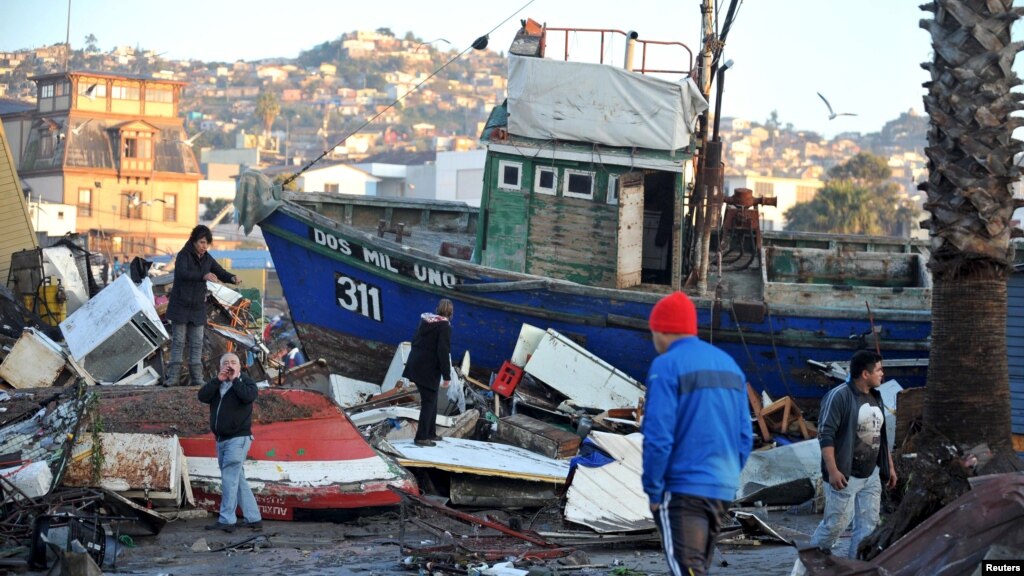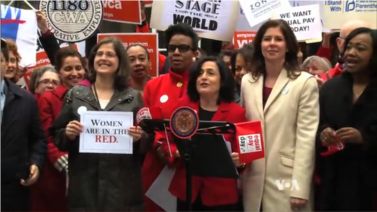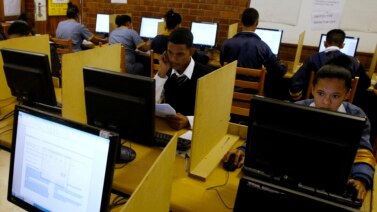
Major Earthquake in Chile Leads to Tsunami Warnings
Officials in Chile now say at least ten people were killed in a powerful earthquake Wednesday night. A widespread tsunami warning followed.
The earthquake shook northern and central Chile. Its center was about 500 kilometers north of the capital city, Santiago. People felt the quake as far away as Buenos Aires, Argentina.
Strong aftershocks followed. Many people spent the night outside.
Chilean President Michelle Bachelet spoke on television after the earthquake. "Once again we must confront a powerful blow from nature," she said. A 2010 earthquake in Chile killed 500 people and badly damaged the city of Concepcion.
Burkina Faso Military Takes Over Government
The head of Burkina Faso's new ruling council says the president and prime minister are safe in military custody. He said they will soon be released.
Brigadier General Gilbert Diendere spoke to VOA's French to Africa Service Thursday. On Wednesday, soldiers overthrew the country's temporary government.
The general said the military acted because the country's political process was unfair. He said he will start a political dialogue that includes all parties.
Burkina Faso had planned to hold presidential and parliamentary elections on October 11.
Suicide Bombing Kills 21 in Central Baghdad
The Islamic State group has said that it responsible for a series of suicide bombings in the Iraqi capital that killed at least 21 people. More than 50 others were wounded.
The bombings happened Thursday in the Bab al-Sharji area and al-Wathba square, two mostly Shi'ite neighborhoods in central Baghdad.
Civilians and police were among the victims of the attacks. The Islamic State said it was responsible in an online statement.
Words in the News
confront – v. to deal with (something, such as a problem or danger)
custody – n. the state of being kept in a prison or jail
dialogue – n. a discussion or series of discussions that two groups or countries have in order to end a disagreement





